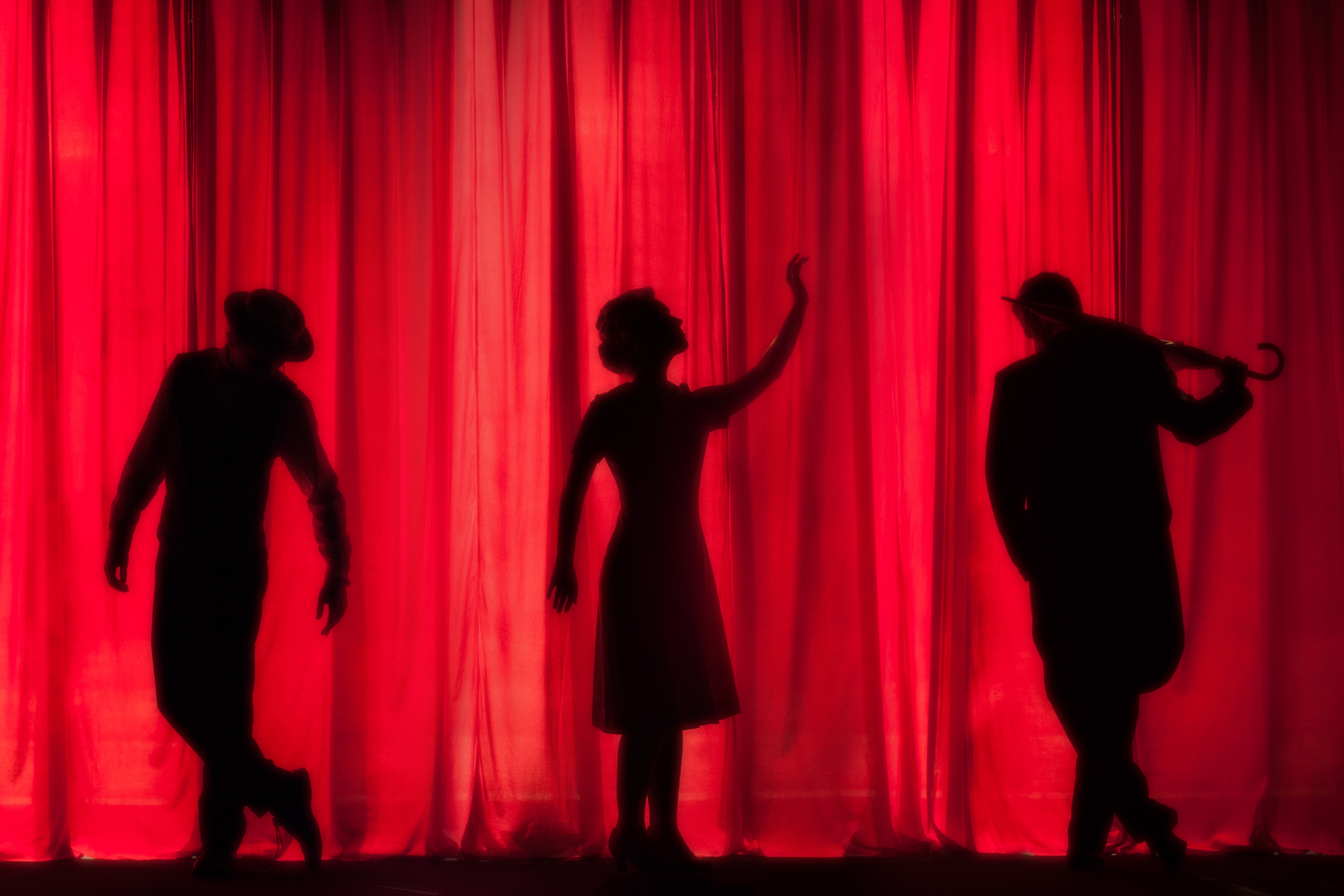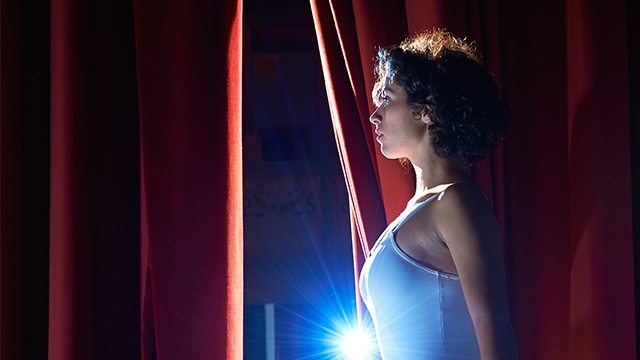Community Theatre VS School Theatre – What to Expect & How to Choose
Written by: Ella Embry
October 15th 2019
Only have the time for one show during the school year? Both the local community theatre and your school are putting up some great shows. But how do you pick which one to do? Here are some of the critical features of Community and School theatres along with pros and cons to help you choose!
The number one way to pick between school and community theatre is the show! If being in a production of Hamlet, no matter where it is is a must for you, then the production of Guys and Dolls going on at your school would not be as tempting. What if the local community theatre is putting up The Crucible and your school is putting up A Streetcar Named Desire. Allowing you to struggle as to whether you d rather play Marry Warren or Stella Kowalski? You could try to do both, but then you would not be giving either role the attention it deserves. There’s no one right answer to school show vs. community theatre, but there are some things you can consider to help you make the best choice for you.
Let’s consider some of the critical features of them both.
Community Theatre:

Community theatres are wonderfully specific to their region and community, so every one of them has their own flair and way of doing things! There are a few things you can expect in a community theatre show. For example, a diverse cast with a variety of ages and backgrounds, actors playing their age and type, and lots of classic pieces and musicals.
Community theatres have open call auditions so you’ll see all sorts of ages and levels of experience coming in to audition. Because of this diversity, actors often play their age and type during the shows. It makes more sense to cast a 46-year-old to play Judge Danforth in The Crucible than it would a 16-year-old requiring heavy age makeup. Since community theatres rely on donations and sponsorships, they often choose their season based on what they know will bring in big audiences. You’ll see shows like Annie as a part of their season far more often than you’ll see shows like The Wolves. Here are some of the pros and cons of choosing to do community theatre:
Pros:
- Community theatre provides a space to work with a wide variety of people in your community. With ranging experiences, whether being in the theatre for decades or those who just started and everyone else in between. Diverse backgrounds from math teachers, web designers to hospital chaplains; you never know. While also providing you with a connection and a better understanding of your community.
- It’s easy to branch out and help out in other areas of the show like costuming, lighting, set building, stage managing, and even assistant directing. Community theatre is all-hands-on-deck. So you may be asked to help with things other than acting – which is a great way to round out your craft better and build your resume!
- Allows for real-world experience of auditioning for shows. Even if you already know everyone working in the show, the audition process will still be formal as professional auditions. It’s an excellent place to figure out what works best for you to handle those pre-audition nerves.
Cons:
- Random rehearsal schedules are typical, given the variety of different people with different schedules. Despite the director and stage manager seeking to create a rehearsal schedule that works for everyone. You may find it challenging to balance rehearsal, school work, and (if you have one) a part-time job.
- The season is more budget driven so it may not include some of the edgy, modern shows that you are dying to participate. Musicals and Christmas shows are often what draw audiences in the most. If these aren’t your thing, you’ll either have to step way outside of your comfort zone or wait until the next show rolls around.
- There is the possibility of being replaced. Heavy schedule conflicts may inspire the director to recast based on the importance of your role with someone who has a less conflicting schedule. As hurtful as it may seem It’s never personal, but rather for the betterment of the show as a whole.
School Theatre:

Depending on what type of school you’re at will heavily influence the type of theatre program. Education systems vary wildly, and each theatre program will run differently and have different access to funds, materials, and workforce. Despite these differences, there is some common ground that all school theatres share. Such as working with your friends and classmates, freedom to act against your age and type, as well as the ability to put up both newer and older pieces.
School theatres have a small pool to cast from and work with – it’s just you and your classmates! So chances are you all already know each other, and you’re all around the same age and experience level. Since you’re so close together in age, it’s easier to play outside of your age and type. Blanche is much older than Stella in the show even if the actor playing Stella is older than the actor playing Blanche. That even playing ground with the other actors means you’ll get more chances to play a role you might not play again until your 30s. School theatres are education-based, and they can take more liberty with what to put up since they don’t have to worry as much about getting people in seats to keep the lights on. In a school season, it wouldn’t be unusual to see Waiting for Godot alongside The Last 5 Years or Oedipus Rex. Here are some of the pros and cons of doing school theatre:
Pros:
- Getting to work with your friends at school whom you already know. You won’t need to worry about making a good impression because your scene partner already knows you – and you likely have worked together before! That sort of history can help create even more detailed and compelling characters.
- Since school theatre is education driven, you’ll get the chance to do some bizarre shows or even put on pieces of your own! You can set up showcases with friends and do a cut from The Vagina Monologues or 26 Pebbles with full tech support from your school’s space.
- School theatre has more competition opportunities. If you love going to conventions to perform (or have never done it but are looking for the chance to go) you won’t have to worry about getting an opportunity to take your show to competition since it’s more than likely already set up within the school system.
Cons:
- You have to do it all for a grade. No matter how much you love your craft and the transient nature of the theatrical arts, your script analysis is still due on Wednesday, your character research due Thursday, and that essay about the playwright next Monday.
- Unless you’re attending an arts school with a specific focus in theatre, the chances are that your school (especially if you’re at a public one) doesn’t focus on the theatre department. They may prioritize a specific sport or academics instead, and that could make the whole process more difficult.
- You may get stuck with a particular person or doing a specific thing. If you’ve been pegged as a costumer it may be difficult to branch out into acting or directing since your teacher knows they can count on you to do costumes and they need someone they can trust to do it. Also, if you happen to disagree with one of your classmates or don’t work well with a certain teacher you won’t be free of them after that one show – you’ll have between the rest of that semester to the rest of your school career working alongside them.
Ultimately – the choice is up to you! Whether or not you dazzle your community as Marry Warren or impress your teachers as Stella Kowalski, the most important thing is that you get to do what you love most. Theatre!

Bonus Tip:
If you’re in college and facing the same question, think about what professional companies might be more impressed with on your resume. While being the lead in every school show sounds like a dream come true, it might not be as impressive as working your way from ensemble to secondary character at a community theatre.
Need some advice? We’ve got you covered.
- 10 Tips for Being a Positive Role Model in Your Theatre Community
- 5 Ways to Say “Thank You” to Your Cast and Crew
- 5 Character Development Techniques to Use in Rehearsals
- 5 Small Ways to Get Into (And Embrace) Your Character
- 5 Ways to Take Care of Yourself During Tech Week
- Devising Theatre: 7 Quick Tips for Your First Devising Project
- “I Can’t, I Have Rehearsal”: 5 Tips for Scheduling Your Life When You’re In Theatre
- How to Make Rehearsals A Warm and Welcoming Environment
- 10 Basic Rules of Stage Combat (That Keep Everyone Safe)
- 5 Advantages of Learning Stage Combat
- Theatre Artists on a Budget: How to Be Smart and Healthy While Pinching Pennies
- Productions on a Budget: Finding Props/Costumes/Set Dressings/Set Pieces Without Breaking the Bank
- 6 Steps to Memorizing Shakespeare
- 5 Helpful Tips for Attending Callbacks
- 10 Tricks to Staying Healthy All Season Long
- How to Balance Theatre and Coursework
- 10 Items Every Actor Should Carry in Their Rehearsal Bag
- 10 Items Every Dancer Should Keep in Their Rehearsal Bag
- Discover the Delightfully Nerdy World of Dramaturgy
